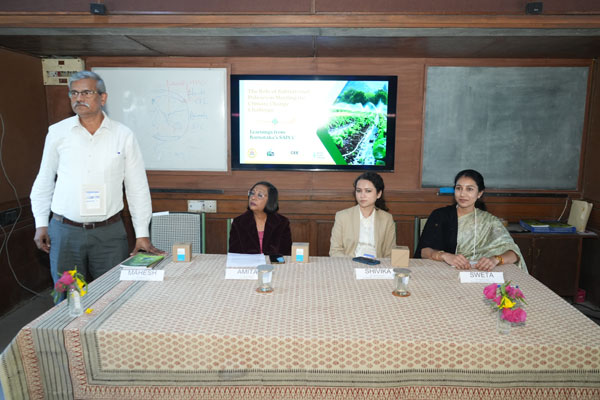Climate change poses a significant global challenge, necessitating coordinated actions at all levels of governance. While national policies establish the overarching framework, subnational policies and initiatives play a crucial role in translating these goals into tangible outcomes on the ground. Karnataka State Action Plan on Climate Change (KSAPCC) serves as a noteworthy example of this paradigm, demonstrating how localised strategies can effectively address regional climate vulnerabilities while aligning with broader national and international climate goals.
This parallel session will focus on the critical role of subnational policies in combating climate change, focusing on Karnataka’s SAPCC as a case study. The session will highlight key achievements, challenges, and lessons learnt during the plan's implementation. Participants will gain insights into:
Through presentations, panel discussions, and interactive dialogue, this session aims to provide policymakers, practitioners, and researchers with actionable takeaways. By sharing learnings from Karnataka, the session will underline the importance of subnational leadership in addressing the global climate crisis..


Speakers

Mr Sandeep Kumar Dubey,
Programme Head, Hanns Seidel Foundation India
Ms Rejini Simpson,
Programme Director, CEE South
Dr Amita Pandya,
Dy. Director, GEDA

Mr Mahesh T,
Director Research, EMPRI
Ms Shivika Solanki,
Senior Manager, Climate Change, Vasudha Foundation